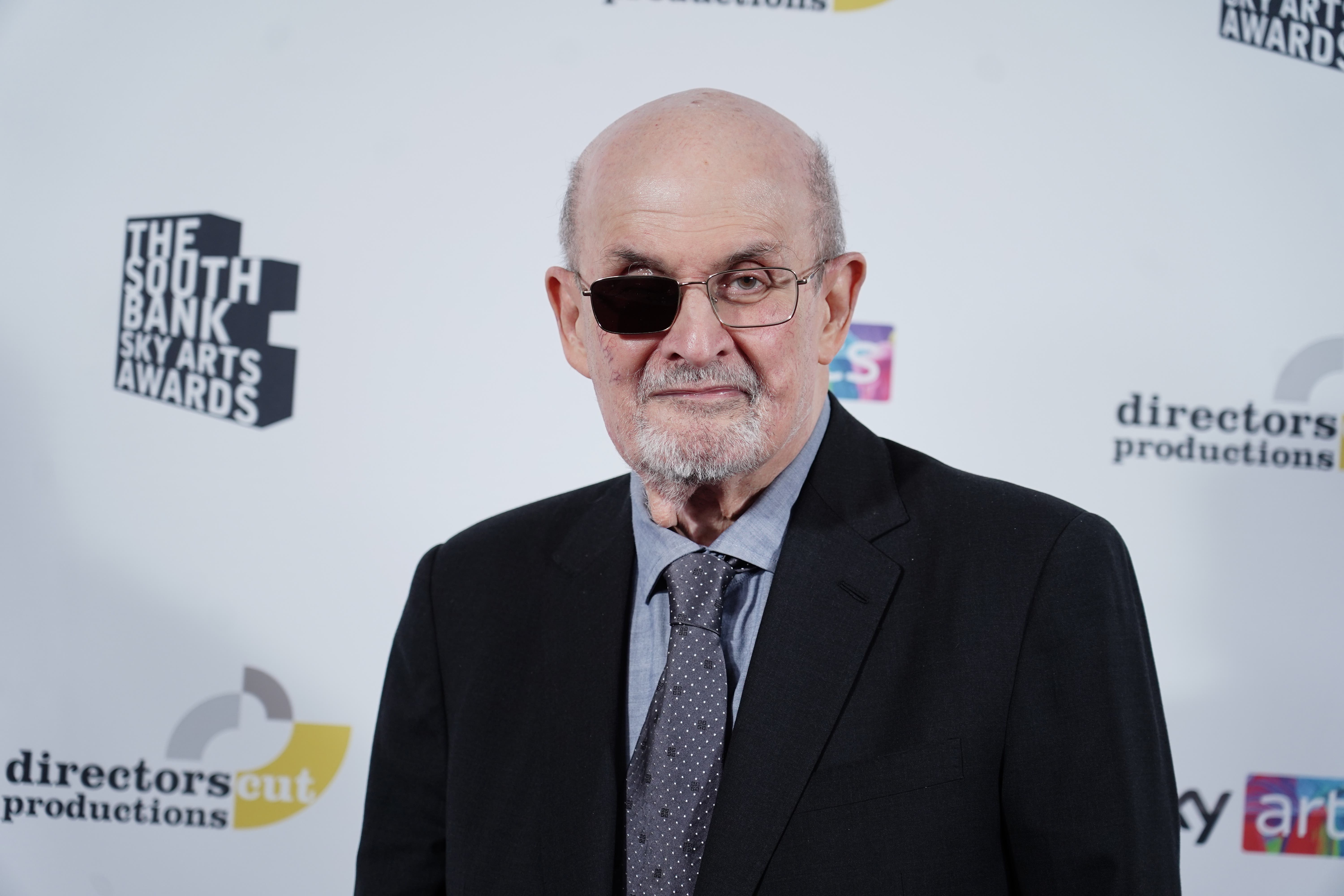Sir Salman Rushdie: Worst fear half realised after knife attack sight loss
The writer was talking at the Edinburgh International Book Festival.

Your support helps us to tell the story
From reproductive rights to climate change to Big Tech, The Independent is on the ground when the story is developing. Whether it's investigating the financials of Elon Musk's pro-Trump PAC or producing our latest documentary, 'The A Word', which shines a light on the American women fighting for reproductive rights, we know how important it is to parse out the facts from the messaging.
At such a critical moment in US history, we need reporters on the ground. Your donation allows us to keep sending journalists to speak to both sides of the story.
The Independent is trusted by Americans across the entire political spectrum. And unlike many other quality news outlets, we choose not to lock Americans out of our reporting and analysis with paywalls. We believe quality journalism should be available to everyone, paid for by those who can afford it.
Your support makes all the difference.Sir Salman Rushdie has told how his worst fear – that of being blinded – half came true when he lost sight in one eye after a knife attack.
The 77-year-old Indian-born author was left blind in his right eye after the attack on stage at the Chautauqua Institution in New York state in August 2022, where he was about to give a talk.
He has since written a book about the ordeal, which he discussed at the Edinburgh International Book Festival, appearing remotely from the US.
The Booker Prize-winning writer described how the injuries he suffered almost realised his worst fear, referencing George Orwell’s novel 1984.
He said: “You know how in Orwell’s 1984 when you get to room 101, what you find there is the worst thing in the world?
“And the worst thing in the world is different for everybody. So for Winston Smith, the tragic anti-hero, the worst thing in the world is rats, and that’s what he finds in room 101. For me, I think it’s always been blindness.
“I think it’s always been the fear of blindness, and then yeah, then it half came true.
“I mean, I’m fortunate that the other eye is in reasonably good shape, thank goodness.”
Sir Salman has faced death threats since the publication of The Satanic Verses, about the life of the prophet Muhammad, which is considered blasphemous by some Muslims.
In 1989, Iran’s former ruler Ayatollah Khomeini issued a fatwa calling for the writer’s death and there was a failed assassination attempt on the author that year.
It's not going to scare me into hiding in a corner
Support for the death sentence was withdrawn in 1998 by the Iranian government.
Hadi Matar, the man accused of attacking Sir Salman, is due to stand trial in October this year and the writer is expected to testify.
Matar’s lawyer last month said he maintains his innocence.
Sir Salman said that he had “more or less” thought the danger he has faced for much of his life was over having lived almost normally for decades – but said recent events would not “scare me into hiding in a corner”.
He said: “Before the attack, I’d been living in New York already, by that time, for more than 22 years, and I’d been leading a perfectly or, I don’t know what a perfectly ordinary writer’s life is, but I had something like that, and I had done hundreds of public events, and there had never been the faintest trace of any trouble.
“And so I thought, well, the world moves on, you know? And that’s what I thought until August the 12th two years ago.”
Speaking at the event, hosted by Fiammetta Rocco, he said that while he has since become more careful “it’s not going to scare me into hiding in a corner. I’ve done that, not doing it again”.
Sir Salman praised his wife, the poet Rachel Eliza Griffiths, describing her as a “pillar of strength” during his recovery.
He said that initially, he did not want to write about his ordeal but later changed his mind after deciding that “the only way around this is to go through it and so I’d better do it.”
His book Knife: Meditations After An Attempted Murder was released in April.
Speaking about freedom of speech and the impact of social media, Sir Salman said that in his view “the best answer to bad speech is better speech” and that repressing it would not help as “by repressing ugliness, you only give it more power.”
He said: “Taboo is an incredibly powerful thing, and if you stop people saying things you don’t like, you make what they say more powerful.
“And so I think on the whole, I’ll try and stick to my argument that the best answer to bad speech is better speech, and let’s hope that still works.”
Sir Salman, who was educated at Rugby School in Warwickshire and King’s College, Cambridge, was knighted in 2008 and in 2022 he was made a member of the Order of the Companions of Honour as part of the then Queen’s Birthday Honours.